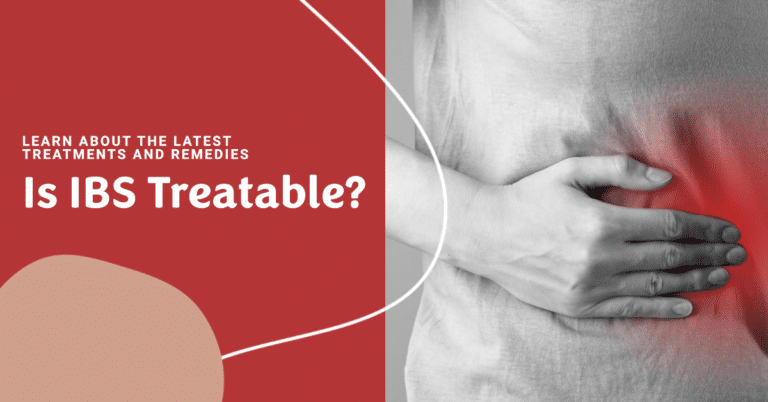What Helps IBS Flare-Up? – 12 Effective Relief & Prevention Tips

Ambushed by an IBS attack again? Before it sabotages your quality of life further, discover how to counter it and learn what helps IBS flare-up episodes!
Research shows certain lifestyle measures can help relieve pain and discomfort and reduce flare-up frequency.
Read on for insights into what helps IBS flare ups – from dietary adjustments like the low FODMAP diet to stress management techniques like Nerva IBS.
Implement these tips to seize back control of your digestive health! Here’s 12 techniques you can use to calm IBS flare ups today.
1. Detect Your Personal Triggers to Avoid Flare-Ups
IBS triggers vary drastically from one person to the next. Start investigating to identify your unique triggers so you can try to prevent or reduce your symptoms of IBS.
Keep a journal to track potential factors like:
- Stressful situations at work or in your relationships that create anxiety and churn up your stomach
- Certain food triggers like onions, garlic, beans, lentils, dairy products, or a host of high-FODMAP foods that feed bad gut bacteria
- Travel, disruptions in routine, or other schedule changes that throw off your normal “gut security”
- Medications like antibiotics or NSAIDs that may cause diarrhea
By logging your diet, stress levels, activities, bowel movements, and symptoms daily in a food and symptom journal, helpful patterns will emerge to avoid or minimize flare-up triggers.
Your journal provides wisdom and insight like a trusted advisor so you’re not caught off guard.
2. Follow a Low-FODMAP Diet During Flare-Ups
When irritable bowel syndrome flares up with a vengeance, switching to a low-FODMAP diet can help reduce the wind in its sails.
FODMAPs are types of carbs that feed mischievous gut bacteria, leading to excess gas production and bloating.
Cutting out high-FODMAP foods during a flare-up helps calm intestinal swelling and inflammation so you can regain control.
Adhere strictly to the diet until the storm passes, then slowly reintroduce FODMAP foods one by one to find your personal tolerance threshold.
Knowing which FODMAPs you can handle in moderation lets you loosen the restrictions when symptoms are calm, while hunkering down on a strict low-FODMAP diet when a flare-up strikes.
Disclaimer: Please consult a qualified dietitian for professional guidance and supervision before starting a low-FODMAP diet to treat IBS.
3. Stock Up On IBS-Friendly Foods
Filling your pantry and fridge with gut-soothing ingredients prepares you for smooth sailing when IBS acts up.
Have supplies on hand like oatmeal, white rice, quinoa, omega-3 rich salmon, bone broth, and soluble fiber from ground flaxseeds or psyllium husk.
The anti-inflammatory and gut-calming effects of these foods help solidify loose stools while easing bloating and abdominal discomfort so you can keep your life on course.
Anticipate needs by keeping IBS-friendly ingredients stocked up.
4. Stay Hydrated to Keep Your Gut Flowing
When an IBS flare-up strikes, hydration becomes your best friend.
Consuming adequate water, herbal tea, and electrolyte drinks like coconut water improves gut flow and prevents the painfully constipated stools that feel like hitting rock bottom.
Shoot for 8 cups of fluids daily as a minimum, increasing your hydration even more during flare-ups to keep things moving smoothly through your intestinal tract.
Well-lubricated bowels have an easier time weathering IBS storms.
5. Consider IBS-Specific Supplements
In addition to diet changes and stress reduction, you can consider certain supplements for IBS to manage symptoms like abdominal pain, bloating, diarrhea, and constipation:
- Peppermint oil capsules to relax contracted intestinal muscles
- Probiotic supplements to call in supportive gut bacteria for better digestion
- Soluble fiber supplements like psyllium to add bulk to loose stools
Discuss with your doctor whether these supplements could provide additional relief during painful flare-ups.
Having the right tools in your toolbox makes you better equipped to handle IBS when it’s at its worst.
6. Use Relaxation Techniques to Calm Your Mind and Gut
We all know stress fuels the fire of IBS symptoms. When you’re already in a flare-up, actively focusing on lowering your stress levels can encourage your strained gut to follow suit.
Quiet anxiety and tension through relaxation techniques like deep belly breathing, meditation, yoga, gentle stretching, calming hobbies, or other practices that engage your parasympathetic nervous system.
Don’t let mental stress rule the roost – relax your way to gut calm.
7. Eliminate Your Personal Trigger Foods
For some people with IBS, certain problem foods always spell disaster, provoking gut reactions that sabotage any sense of wellbeing.
Determine your personal trigger foods and consider eliminating them completely during flare-ups or on an ongoing basis, including:
- Dairy products that may stimulate lactose intolerance chaos
- Wheat and gluten grains can spark inflammation
- High-fructose fruits like apples and pears that cause fits of diarrhea
- Gas-producing vegetables like onions, garlic, and cruciferous veggies that inflate your gut
- FODMAP-filled legumes like beans and lentils that can lead to painful bloating
- Caffeine or fizzy carbonated drinks that overexcite your gut
By permanently removing the most temperamental foods from your diet, you may be able to sail through IBS flare-ups less frequently.
Don’t keep upsetting your system – ditch problem foods for relief.
8. Take Prescribed Medications Judiciously
While no one likes feeling dependent on medication, prescription medications can provide much-needed symptom relief when IBS has you feeling washed overboard.
Anti-diarrheal agents like loperamide (Imodium) can slow rapid transit, while antispasmodics ease strained intestinal muscles.
For severe IBS, prescription meds directly treat the most bothersome symptoms of chronic diarrhea, persistent constipation, or abdominal pain and cramping.
Work closely with a gastroenterology professional to optimize medications that can get you back on deck.
9. See Your Doctor to Rule Out Other Conditions
IBS flare-ups typically subside within a few days to weeks, like a passing storm.
But if you’re experiencing chronic diarrhea, rectal bleeding, weight loss, or other red flag symptoms, your gut likely faces bigger issues than IBS alone.
Schedule an appointment with your family doctor or gastroenterologist to rule out more serious conditions that mimic IBS, including:
- Inflammatory bowel disease (Crohn’s, Ulcerative Colitis)
- Celiac disease
- Non-celiac gluten sensitivity
- Food intolerances
- Small intestinal bacterial overgrowth (SIBO)
- Microscopic colitis
- Gastrointestinal infection
Getting the proper diagnosis allows you to pursue the most effective treatment so you’re not just aimlessly adrift treating the wrong problem.
Don’t assume all tummy troubles are created equal!
10. Enlist Your Support Team to Help You Weather IBS Flares
Don’t try to withstand the misery of an IBS flare-up alone, riding solo.
Confide in caring friends or family members who can offer a sympathetic, non-judgmental ear as you vent frustrations or worries.
Their reassurance and encouragement helps preserve your resilience so you can carry on bravely.
Together you can reinforce one another’s mental strength until the storm passes.
11. Review Your Food and Symptom Logs to Learn From Each Flare
Similar to reviewing the ship’s log after an eventful voyage, take time to analyze your food and symptom journal after each IBS flare-up.
Look for any potential triggers or patterns tied to that particular episode so you can try to prevent or minimize them next time.
Consistent journaling sheds light on successfully navigating IBS, even when symptoms seem unpredictable.
12. Consult Professionals If Needed to Stay Afloat
If frequent severe IBS flare-ups continually capsize your ability to function in daily responsibilities, don’t go down with the ship – call in reinforcements.
A gastroenterologist can advise advanced treatment plans, while a mental health professional will teach coping strategies to master your mindset.
Support groups can also provide community and camaraderie from others weathering the same storms. You don’t have to white-knuckle this alone.
What Helps IBS Flare-Up? – Final Thoughts
While IBS can certainly feel like a ruthless, unpredictable foe when flare-ups strike, arming yourself with coping strategies and self-care habits helps prevent some bouts and minimize others.
Avoid recognized triggers, follow a modified low-FODMAP diet, employ relaxing techniques, use medications as prescribed, confide in your support squad, learn from your symptom journal, and consult professionals as needed.
With consistency in practicing preventive habits, you can gain increasing control over IBS rather than allowing it to control you.
Here’s to smooth sailing ahead!
Disclaimer: This content is based on my personal experience as an individual diagnosed with celiac disease and IBS (Irritable Bowel Syndrome) who follows a strict gluten-free diet. This does not constitute medical advice. Please consult a medical professional, nutritionist, or qualified dietitian for personalized, professional advice.



